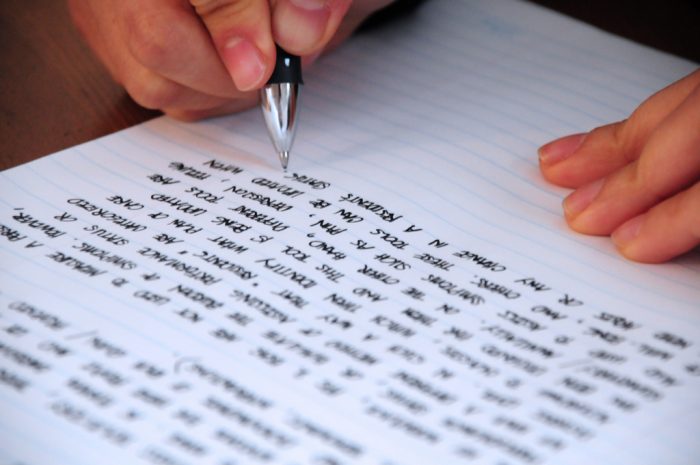A novel’s power to enthrall is solely based on its words, devoid of images, audio, or color. The descriptions of action, surroundings, setting, and characters provided by authors determine whether or not readers will finish a book or discard it.
It’s not uncommon for writers to know how sound can help them tell their stories better. Whether you write in the first or third person, your story (and your readers) should benefit.
Imagine being able to smell a freshly baked cake or see the tangerine glow of a sunset. Can you see the glowing horizon or smell the sweetness of sugar and flour in the air? Like how memories of smell and sight can activate our senses, descriptions of sound in a story can help us understand what is happening.
When writing, you must use all five of your senses. It’s critical for readers to be able to see, hear, taste, and touch what your characters see, hear, taste, and feel in your work. Using their senses, authors can learn to show rather than tell.
You don’t have to be concerned if you don’t know how to describe sounds in writing because we will explain everything about sounds in writing in this article.
How to Describe Sounds in Writing
Research From Other Authors Work
In either case, research is an integral part of the process of developing your novel’s world. Using the information you gathered during your research will give your reader a better sense of place. It will aid you in the development of characters and a plot. The writing process helps you retain and comprehend what you’ve learned during the research process, allowing you to become an expert in your chosen subject matter.
Reading a writer’s work is the best way to learn about their style of describing sounds. It is critical to keep things fresh when conducting research. A thorough literature review is required to get a clear picture of what is already known and identify any gaps in our knowledge.
We can get a sense of a new topic and the sound you could use in your work by listening to it. There are times when we can solve a problem by exploiting a gap in our knowledge.
Sounds Should Fit The Context
Writing in a specific tone sends a particular message to the reader and affects them. As a result, the reader’s perception of the sounds you convey may change.
Strong writers, on the whole, understand the importance of making sound decisions when it comes to their work. Your stories and poems will be more powerful and vivid if you use strong sound choices to create clear moods and images with your vocabulary and language.
The issue is that if your sound description does not fit the context of your work, it will appear as if you are trying too hard, which will result in a lack of readership for your piece.
Don’t Over Use it
Using onomatopoeia to incorporate sound into your writing is a great way to do so. Overuse of onomatopoeia to describe things is usually caused by too many interjections or one-word sentences. If you use these in your writing, a reader may be jolted out of their reading experience. Repetition is a quick way to become cliché
Using sounds in your writing can help you connect with your audience’s emotions, needs, wants, and interests. The more you connect with your audience, the more likely they will engage with your content. Using sound to elicit an emotional response from a reader (or reader and brand) can aid in the development of a relationship. Related: How to Convey Emotion in Writing
People’s use of language can contribute to this distant and weakening connection. Trying to impress your audience with flowery language (such as “highfalutin”) that they don’t understand is the quickest way to alienate them. Words can be twisted, so use caution.
Writing with onomatopoeia is effective because it engages the reader’s senses, making the piece more memorable. They are “written sounds” that add weight and depth to otherwise flat passages.
Types of Sounds
General Sounds
A child must decode letters into their corresponding sounds to read unfamiliar words on their own. If children have general sound knowledge, they will connect the foreign print words and their spoken knowledge.
Understanding the fundamental sounds in words greatly aids reading and writing. When students understand that comments are made up of sounds, their reading and writing skills improve.
Some of the General Sounds Examples:
- Barked: She barked and snatched his shirt.
- Whoosh: A loud whoosh blew through the park.
- Hush: A hush in the dark
- Chimes: The wind made the various chimes hanging from the eaves and trees sing.
- Croaking: Croaking of frogs
- Muffled: Muffled music pulsed from a building to our right, boomed as a patron emerged.
- Creaking: The creaking, the sea noises, and the night birds outside.
Nature Sounds
In the early twenty-first century, soundscapes were divided into three categories:
- Geophony (non-biological natural sounds) (such as the sound of running water or ocean waves)
- Wind-generated sounds (such as wind in trees or grass)
- Earth-generated sounds
In the forest around us, insects buzz, frogs yelp, birds squawk, mammals scurry, and bats click. Noise from the high canopy reverberates like an ocean wave, and even the trees appear to vibrate in time with the sound.
Some of the Nature Sounds Examples:
- Roared: The wind roared
- Pitter Patter: The pitter-patter of raindrops on the rooftops
- Whisper: The clinking whisper of snow on the meta
- Chirping: Chirping Of birds
- Whistle: Whistle of the winds
- Rustle: Rustle Of Leaves
- Flowing: Flowing of the Waves
Hard Sounds
Hard effects are sounds associated with an action or event independent of the sound’s performance, such as car horns, gunshots, and punches. Synthesized sounds include keyboard sounds and heavily processed audio plug-in sounds.
If you’re writing an action novel, you’ll need to do some research to find these kinds of sounds. Perfect sound writing is essential for action sequences in your book. Before diving in headfirst, we strongly advise you to learn as much as you can about the genre of action novels.
Some of the Hard Sounds Examples:
- The explosion caused by the detonation of the RPG’s launcher
- The whoosh made as it sped through the air toward its destination
- There was a loud boom when the RPG connected
- Make a camp under the stars and make klaxon noises
- The clatter of metal
- As the plane began to take off, the sound of a red-lining industrial turbine could be heard
- The ship’s internal speaker system began to emit a klaxon-like sound
Importance of Sounds in Writing
Sound is significant because it can reveal information about a person’s personality, location, and time. A combination of sound and visuals elicits emotions that neither can produce alone. This is why sound is so crucial. It’s also possible that it’ll have an impact on what we see.
To Make Your Novel Light-hearted
Readers are hooked after reading the first page and will not let go until the end of the book. So, what is the significance of using solid sounds in a book? Readers are drawn into a story when they can identify with, love, or despise a character.
Using appropriate sounds for appropriate situations in a story might help readers clearly understand what the writer is attempting to convey with his work. When writers feel their story is becoming too serious, sounds might help them make it more lighthearted and easy to understand to readers. Writing a book that is difficult to read due to bad sound structuring is a tragedy.
To Create Interesting Characters
Believable characters are distinct and three-dimensional. Each character is easy to relate to because they have real-world characteristics, such as appearance, sound, personality, and a backstory. As a story progresses, a character’s actions and decisions are influenced by their motivations.
Short stories heavily rely on sound to advance the plot and flesh out the characters. Different types of characters in a tale generate different kinds of conflicts, tensions, and other kinds of resolutions.
Suppose the reader does not understand your characters, their values, and how they react to situations. In that case, they will be unable to appreciate the significance of your events, and your story will have no impact.
To Speak to Audience
To strengthen a relationship, you must elicit an emotional response through the sounds you use in your writing. Speak directly to the reader and address their specific needs in your writing. You must respond to comments left by your readers.
It would help if you determined what your target market desires. Creating an audience persona will help you relate and empathize with your audience by giving you a better understanding of their daily routines.
Things You Should Not Do While Writing
Don’t Create Flat Characters
It’s easy to imagine a flat character as the polar opposite of an interesting one. A “flat character” is a two-dimensional character who lacks depth or personality. Flat characters typically have only one or two distinguishing features.
The majority of static characters (those who do not change at the end of the story) are flat, but this is not always the case. Character development is an integral part of the writing process because they will be the ones who guide the reader on this journey.
A two-dimensional cast of characters isn’t always a book’s undoing. Now and then, a flat surface can help your story! Charles Dickens’ ability to create casts full of memorable caricatures was one of his many talents. But you don’t want your main character(s) to be flat unless you want your audience to lose interest in them.
Make them three-dimensional by considering who they are at their core and giving them a rich inner life. Create a backstory for each character, whether the main focus or a supporting one in your story. You’ll benefit from having a backstory when writing character arcs.
Don’t Copy Famous Writers
Don’t pretend to be someone you aren’t. As cliché as it may sound, you have a unique voice, style, and approach that no one else has.
No matter how good you think you are at writing, copying other people’s work will not help you develop your writing skills. Describing sounds your own way in your writing helps readers to understand the most minor details and nuances of your writing.
Everyone’s individuality is valued. Copying the style and language of someone you admire as a writer is pointless because that person is not you, which amounts to plagiarism. What works best for you is to experiment with different writing styles and formats. It would help if you found a style and layout that you enjoy.
Should Never Stop Practicing
A writer must write regularly to convey their thoughts to others… Keep a journal of your ideas and refer to them frequently. Journaling or keeping a “thought diary” is a simple way to keep track of your thoughts as they come to you. Furthermore, you must revisit these concepts regularly. No guarantee combining two ideas will result in a winning one.
Reading can broaden your horizons by immersing you in new settings, ideas, and perspectives. Aside from the obvious benefits of learning more about writing and developing your skills in sentence structure and new ideas, reading allows you to decompress and unwind from the pressures of writing every day.
You’ll benefit from editing practice because you’ll know what to look for before you start writing. It’s time to start writing a guide. To improve your organization, analytical skills, and writing, you’ll need to do a lot of research and step-by-step summarization of concepts.
Conclusion
It will be a rewarding experience to use sound to convey emotion and a sense of intimacy in your writing. Make use of sounds to express your thoughts and ideas uniquely. You’ll discover a new purpose, a new goal, amid the daily grind.
Writing sounds necessitates a reflective, introspective approach. Writing a book forces you to examine your thoughts and ideas. By putting pen to paper, you’ll gain a better understanding of what truly matters in your life. The process of writing a book will also teach you the value of your willpower.
After reading this article, we hope that you have a better understanding of how to describe sounds in writing. Finally, we advise you to spend as much practice time as possible.



